|
Key Point: Americans are suffering under big-government policies as average weekly earnings adjusted for inflation are down for 21 straight months. It's time for pro-growth policies to unleash economic potential to let people prosper. Overview: The irresponsible “shutdown recession” and subsequent government failures have led to a longer, deeper recession with high inflation that are having persistent consequences for many Americans’ livelihoods. This includes excessive federal spending redistributing scarce private sector resources with deficit spending of more than $7 trillion since January 2020 to reach the new high of $31.4 trillion in national debt—about $95,000 owed per American or $250,000 owed per taxpayer. This new debt has hit its limit and needs to be addressed with spending restraint as the Federal Reserve monetized most of the new debt, leading to a 40-year-high inflation rates. The failed policies of the Biden administration, Congress, and the Fed must be replaced with a liberty-preserving, free-market, pro-growth approach by the new majority by House Republicans so there are more opportunities to let people prosper. Labor Market: The U.S. Bureau of Labor Statistics recently released the U.S. jobs report for December 2022. The BLS’s establishment report shows there were 223,000 net nonfarm jobs added last month, with 220,000 added in the private sector. Interestingly, while there have appeared to be a relatively robust number of jobs created, a recent report by the Philadelphia Fed find that if you add up the jobs added in states in Q2:2022 there were just 10,500 net new jobs rather than more than 1 million initially estimated. This further indicates that the recession started in (likely) March 2022 (more on this below). That expected revision to the establishment report supports the weak data in the BLS’s household survey, which employment increased by 717,000 jobs last month but had declined in four of the last nine months for a total increase of 916,000 jobs since March 2022. This number of net jobs added since then is much lower than the report 2.9 million payroll jobs in the establishment. The official U3 unemployment rate declined slightly to 3.5%, but challenges remain, including: 3.1% decline in average weekly earnings (inflation-adjusted) over the last year, 0.4-percentage point lower prime-age (25–54 years old) employment-population ratio than in February 2020, 0.6-percentage point below prime-age labor force participation rate, and 1.0-percentage-point lower total labor-force participation rate with millions of people out of the labor force. These data support my warnings for months of stagflation, recession, and a “zombie economy.” This includes “zombie labor” as many workers are sitting on the sidelines and others are “quiet quitting” while there’s a declining number of unfilled jobs than unemployed people to 4.5 million And that demand for labor is likely inflated from many “zombie firms,” which run on debt and could make up at least 20% of the stock market and will likely lay off workers with rising debt costs. Economic Growth: The U.S. Bureau of Economic Analysis’ released economic output data for Q4:2022. The following provides data for real total gross domestic product (GDP), measured in chained 2012 dollars, and real private GDP, which excludes government consumption expenditures and gross investment. The shutdown recession in 2020 had GDP contract at historic annualized rates because of individual responses and government-imposed shutdowns related to the COVID-19 pandemic. Economic activity has had booms and busts thereafter because of inappropriately imposed government COVID-related restrictions in response to the pandemic and poor fiscal policies that severely hurt people’s ability to exchange and work. Since 2021, the growth in nominal total GDP, measured in current dollars, was dominated by inflation, which distorts economic activity. The GDP implicit price deflator was +6.1% for Q4-over-Q4 2021, representing half of the +12.2% increase in nominal total GDP. This inflation measure was +9.1% in Q2:2022—the highest since Q1:1981—for a +8.5% increase in nominal total GDP that quarter. This made two consecutive declines in real total (and private) GDP, providing a criterion to date recessions every time since at least 1950. In Q3:2022, nominal total GDP was +7.6% and GDP inflation was +4.4% for the +3.2% increase in real total GDP. But if inflation had been as high as it was in the prior two quarters or had the contribution of net exports of goods and services (driven by natural gas exports to Europe) not been 2.9%, real total GDP would have either declined or been essentially flat for a third straight quarter. In Q4:2022, there was a similar story of weaknesses as nominal total GDP was +6.4% and GDP inflation was +3.5% for the +2.9% increase in real total GDP. But if you consider the +2.9% real total GDP growth was driven by contributions of volatile inventories (+1.5pp), government spending (+0.6pp), and next exports (+0.6pp) which total +2.7pp, the actual growth is quite tepid. For all of 2022, real total GDP growth is reported +2.1% year-over-year but measured by Q4-over-Q4 the growth rate was only +0.96%, which was the slowest Q4-over-Q4 growth for a year since 2009 (last part of Great Recession). The Atlanta Fed’s early GDPNow projection on January 27, 2023 for real total GDP growth in Q1:2023 was +0.7% based on the latest data available. The table above also shows the last expansion from June 2009 to February 2020. The earlier part of the expansion had slower real total GDP growth but had faster real private GDP growth. A reason for this difference is higher deficit-spending in the latter period, contributing to crowding-out of the productive private sector. Congress’ excessive spending thereafter led to a massive increase in the national debt that would have led to higher market interest rates. This is yet another example of how there is always an excessive government spending problem as noted in the following figure with federal spending and tax receipts as a share of GDP. But the Fed monetized much of it to keep rates artificially lower thereby creating higher inflation as there has been too much money chasing too few goods and services as production has been overregulated and overtaxed and workers have been given too many handouts. The Fed’s balance sheet exploded from about $4 trillion, when it was already bloated after the Great Recession, to nearly $9 trillion and is down only about 6% since the record high in April 2022. The Fed will need to cut its balance sheet (see first figure below with total assets over time) more aggressively if it is to stop manipulating so many markets (see second figure with types of assets on its balance sheet) and persistently tame inflation. The resulting inflation measured by the consumer price index (CPI) has cooled some from the peak of 9.1% in June 2022 but remains hot at 6.5% in December 2022 over the last year, which remains at a 40-year high (highest since June 1982) along with other key measures of inflation (see figure below). After adjusting total earnings in the private sector for CPI inflation, real total earnings are up by only 1.1% since February 2020 as the shutdown recession took a huge hit on total earnings and then higher inflation hindered increased purchasing power. Just as inflation is always and everywhere a monetary phenomenon, high deficits and taxes are always and everywhere a spending problem. The figure below (h/t David Boaz at Cato Institute) shows how this problem is from both Republicans and Democrats. As the federal debt far exceeds U.S. GDP, and President Biden proposed an irresponsible FY23 budget and Congress never passed one until the ridiculous $1.7 trillion omnibus in December, America needs a fiscal rule like the Responsible American Budget (RAB) with a maximum spending limit based on population growth plus inflation. If Congress had followed this approach from 2002 to 2021, the (updated) $17.7 trillion national debt increase would instead have been a $1.1 trillion decrease (i.e., surplus) for a $18.8 trillion swing to the positive that would have reduced the cost to Americans. The Republican Study Committee recently noted the strength of this type of fiscal rule in its FY 2023 “Blueprint to Save America.” And the Federal Reserve should follow a monetary rule.
Bottom Line: Americans are struggling from bad policies out of D.C., which have resulted in a recession with high inflation. Instead of passing massive spending bills, like passage of the “Inflation Reduction Act” that will result in higher taxes, more inflation, and deeper recession, the path forward should include pro-growth policies. These policies ought to be similar to those that supported historic prosperity from 2017 to 2019 that get government out of the way rather than the progressive policies of more spending, regulating, and taxing. The time is now for limited government with sound fiscal and monetary policy that provides more opportunities for people to work and have more paths out of poverty. Recommendations:
0 Comments
Key Point: Texas continues to lead the way in job creation over the last year (see first figure) and second in economic growth in the third quarter of 2023 (see last figure), but there’s more to do to help struggling Texans deal with the state’s affordability crisis, especially spending, regulating, and taxing less. Overview: Texas has been a national leader in the economic recovery since the inappropriate shutdown recession in Spring 2020. This includes reaching a new record high in total nonfarm employment for the 14th straight month, leading exports of technology products for 20 consecutive years, and being home to more than 50 of the world’s Fortune 500 companies. While the 87th Texas Legislature in 2021 supported the recovery by passing many pro-growth policies like the nation’s strongest state spending limit, there’s more to do in the ongoing 2023 session to remove barriers placed by state and local governments. Labor Market: The best path to prosperity is a job, as it helps bring financial self-sufficiency, dignity, hope, and purpose to people so they can earn a living, gain skills, and build social capital. The table below shows the state’s labor market for December 2022. The establishment survey shows that net nonfarm jobs in Texas increased by 29,500 last month, resulting in increases for 31 of the last 32 months, to bring record-high employment to 13.7 million. Compared with a year ago, total employment was up by 650,100 (+5.0%)—fastest growth rate in the country—with the private sector adding 628,800 jobs (+5.7) and the government adding 21,300 jobs (+1.1%). The household survey shows that the labor force participation rate is slightly higher than in February 2020 but well below June 2009 at the trough of the Great Recession. The employment-population ratio fell was unchanged in November and nearly where it was in February 2020, and the private sector now employs 700,000 more people than then. Texans still face challenges with a worse unemployment rate, though historically low, and nonfarm private jobs just recently above its pre-shutdown trend (Figure 1). The figure below compares the ratio of current private employment to pre-shutdown forecast levels in red states and blue states if both chambers of the legislature and the governor are Republican (dark red), Democrat (dark blue), or some combination (lighter colors). The results show a clear distinction between red states and blue states, with the stringency of restrictions by governments during the pandemic along with pro-growth policies before and after the shutdowns playing key roles. Specifically, 21 of the 25 states with the best (highest) ratios are in red-ish states while 13 of the 15 states and D.C. with the worst (lowest) ratios are in blue-ish places as of December 2022. The following figure from Soquel Creek on Twitter tells the story even more directly: those states with more economic freedom prosper more than those with less economic freedom (see rankings in Fraser Institute's Economic Freedom of North America report: FL ranks #1, Texas ranks #4, California ranks #49, and New York ranks #50). Overall, multiple indicators should be considered in this nuanced labor market, such as the fact that the unemployment rate is a weak indicator as many have dropped out of the labor force. While the labor force participation rate in Texas slightly exceeds where it was before the shutdowns, and the 3.9% unemployment rate could be considered full employment, the employment-population ratio is 0.2-percentage point below the pre-shutdown ratio. Economic Growth: The U.S. Bureau of Economic Analysis (BEA) recently provided the real gross domestic product (GDP) by state for Q3:2022. The Figure below Texas had the second fastest GDP growth (first is Alaska) of +8.2% on an annualized basis to $1.89 trillion (above the U.S. average of +3.2% to $20.05 trillion). In the prior quarter, Texas had the fastest growth with +1.8% growth as the U.S. average declined by -0.6% that quarter. Of course, these followed Texas’ GDP contractions of -7.0% in Q1:2020 and -28.5% in Q2 during the depths of the shutdown recession. Fortunately, GDP rebounded in Q3 and Q4, yet declined overall in 2020 by -2.9% (less than -3.4% decline of U.S. average) but increased by +3.9% in 2021 (below the +5.9% U.S. average). The BEA also reported that personal income in Texas grew at an annualized pace of +6.9% in Q3:2022 (ranked 6th highest and faster than the U.S. average of +5.3%) but slower than the robust +8.4% in Q2:2022 (ranked 6th best and above the U.S. average of +4.9%) as job creation and inflated income measures found their way across the economy. 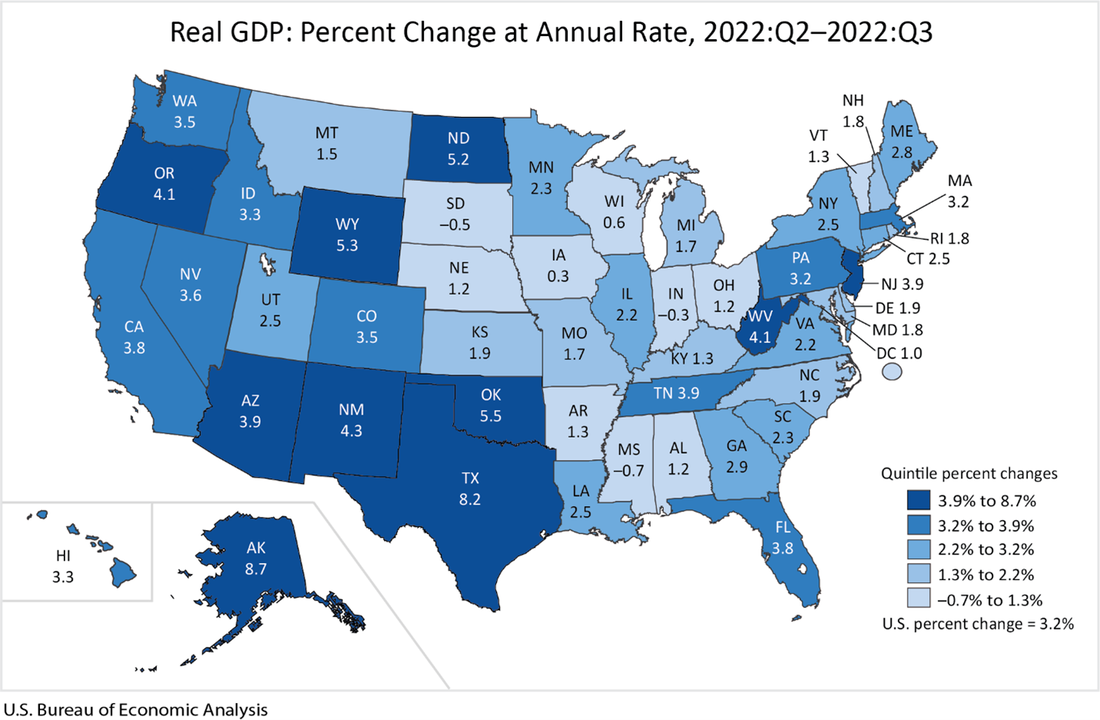 Bottom Line: As Texas recovers from the shutdown recession and faces an uncertain future with the U.S. economy having stagflation and a likely recession, Texans need substantial relief to help make ends meet. Other states are cutting, flattening, and phasing out taxes, so Texas must make bold reforms to support more opportunities to let people prosper, mitigate the affordability crisis, and withstand destructive policies out of D.C.
Free-Market Solutions: In 2023, the Texas Legislature should improve the Texas Model by:
Key Point: Texas leads the way in job creation over the last year and in economic growth in the latest reported quarter but there’s more to do to help struggling Texans deal with the state’s affordability crisis, especially spending less and moving further to sales taxes. Overview: Texas has been a national leader in the economic recovery since the inappropriate shutdown recession in Spring 2020. This includes reaching a new record high in total nonfarm employment for the 13th straight month, leading exports of technology products for 20 consecutive years, and being home to 54 of the Fortune 500 companies. While the 87th Texas Legislature in 2021 supported the recovery by passing many pro-growth policies like the nation’s strongest state spending limit, there’s more to do in the session in 2023 to remove barriers placed by state and local governments. Solutions include governments passing responsible budgets and returning surplus tax dollars collected to taxpayers by reducing property taxes until they’re eliminated. Other states are cutting, flattening, and phasing out taxes, so Texas must make bold reforms to support more opportunities to let people prosper, mitigate the affordability crisis, and withstand destructive policies out of D.C. Labor Market: The best path to prosperity is a job, as it helps bring financial self-sufficiency, dignity, hope, and purpose to people so they can earn a living, gain skills, and build social capital. The table below shows the state’s labor market for November 2022. The establishment survey shows that net nonfarm jobs in Texas increased by 33,600 last month, resulting in increases for 30 of the last 31 months, to bring record-high employment to 13.7 million. Compared with a year ago, total employment was up by 657,600 (+5.1%), which was the fastest growth rate in the nation, with the private sector adding 635,100 jobs (+5.8) and the government adding 22,500 jobs (+1.1%). The household survey shows that the labor force participation rate is slightly higher than in February 2020 but well below June 2009 at the trough of the Great Recession. The employment-population ratio fell by 0.1% in November moving it further away from where it was in February 2020, and the private sector now employs 700,000 more people. Texans still face challenges with a worse unemployment rate, though historically low, and nonfarm private jobs just recently above its pre-shutdown trend (Figure 1). Figure 1 compares the ratio of current private employment to pre-shutdown forecast levels in red states and blue states if both chambers of the legislature and the governor are Republican (dark red), Democrat (dark blue), or some combination (lighter colors). The results show a clear distinction between red states and blue states, with the stringency of restrictions by governments during the pandemic along with pro-growth policies before and after the shutdowns playing key roles. Specifically, 22 of the 25 states with the best (highest) ratios are in red-ish states while 13 of the 15 states and D.C. with the worst (lowest) ratios are in blue-ish places as of October 2022. Figure 1 Ratios of Current Private Jobs to Pre-Shutdown Forecast of Private Jobs by Place and Political Representation, October 2022 Overall, multiple indicators should be considered as the unemployment rate is a rather weak signal of the labor market. While the labor force participation rate in Texas exceeds where it was before the shutdowns, and the 4.0% unemployment rate could be full employment, the employment-population ratio is 0.2-percentage point above the pre-shutdown ratio. Economic Growth: The U.S. Bureau of Economic Analysis (BEA) provided the real gross domestic product (GDP) by state for Q2:2022. Texas had the fastest GDP growth of +1.8%—to $1.85 trillion—on an annualized basis (above the -2.6% U.S. average). These followed Texas’ GDP growth declines of -7.0% in Q1:2020 and -28.5% in Q2 during the depths of the recession. GDP rebounded in Q3 and Q4, yet declined overall in 2020 by -2.9% (less than -3.4% decline of U.S. average) but increased by +3.9% in 2021 (below the +5.9% U.S. average). The BEA also reported that personal income in Texas grew at an annualized pace of +9.3% in Q2:2022 (ranked 3rd best and above the +5.8% U.S. average) as job creation and inflated income measures found their way across the economy. Bottom Line: As Texas recovers from the shutdown recession and faces an uncertain future with the U.S. economy having stagflation and a likely recession, Texans need substantial relief to help make ends meet. While the Texas Model was strengthened by the 87th Legislature last year from less government spending, taxing, and regulating, more is needed for limiting government at the state and local levels.
Recommendations: In 2023, the Texas Legislature should improve upon its past efforts by:
Key Point: We need pro-growth policies to unleash economic prosperity. Overview: The irresponsible “shutdown recession” from February to April 2020 and subsequent government failures of excessive spending, regulation, and printing of money have led to a longer, deeper recession with high inflation that will have long-lasting consequences for many Americans’ livelihoods now and in the future. This includes excessive federal spending redistributing scarce private sector resources with deficit spending of more than $7 trillion since January 2020 to reach the new high of $31.4 trillion in national debt—about $95,000 owed per American or $250,000 owed per taxpayer. This new debt added fuel to the fire as the Federal Reserve monetized most of the new debt, leading to a 40-year-high inflation rates, substantially reducing our purchasing power even when accounting for increases in earnings. The inflated transitory boom continues to bust into a long, deep recession with high inflation, which hasn’t happened since Joan Jett and the Blackhearts was the top-ranked rock band in 1982. The failed policies of the Biden administration, Congress, and the Fed must be replaced with a liberty-preserving, free-market, pro-growth approach so there are more opportunities to let people prosper. Labor Market: The U.S. Bureau of Labor Statistics recently released the U.S. jobs report for November 2022. The establishment report shows there were 263,000 net nonfarm jobs added last month, with 221,000 added in the private sector. Interestingly, while there have appeared to be a relatively robust number of jobs created, a recent report by the Philadelphia Fed find that if you add up the jobs added in states in Q2:2022 there were just 10,500 net new jobs rather than more than 1 million initially estimated. This further indicates that the recession started earlier this year, likely in March. The official U3 unemployment rate increased to what remains a historically low rate of 3.7%, but challenges remain. These challenges include a 3.0% decline in average weekly earnings (inflation-adjusted) over the last year, a 0.8-percentage point lower prime-age (25–54 years old) employment-population ratio than in February 2020, and a 1.3-percentage-point lower labor-force participation rate with millions of people out of the labor force. Things look worse when you consider the household survey, which employment declined by 138,000 jobs last month and has declined in four of the last eight months for a total increase of just 12,000 jobs since March 2022 (when I would date the 2022 recession). This goes along with my warnings for months of a “zombie economy.” This includes “zombie labor” as many workers are sitting on the sidelines and others are “quiet quitting” while there’s a declining number of unfilled jobs than unemployed people to 4.3 million And that demand for labor is likely inflated from many “zombie firms,” which run on debt and could make up at least 20% of the stock market and will likely lay off workers with rising debt costs. Economic Growth: The U.S. Bureau of Economic Analysis’ released economic output data for Q3:2022. The following provides data for real total gross domestic product (GDP), measured in chained 2012 dollars, and real private GDP, which excludes government consumption expenditures and gross investment. The shutdown recession contracted at historic annualized rates because of individual responses and government-imposed shutdowns related to the COVID-19 pandemic. Economic activity has had booms and busts thereafter because of inappropriately imposed government COVID-related restrictions in response to the pandemic that severely hurt people’s ability to exchange and work. In 2021, the growth in nominal total GDP, measured in current dollars, was dominated by inflation, which distorts economic activity. The GDP implicit price deflator was up 6.1% for Q4-over-Q4 2021, representing half of the 12.2% increase in nominal total GDP. This inflation measure was up by 9.1% in Q2:2022—the highest since Q1:1981—for an 8.5% increase in nominal total GDP. This made two consecutive declines in real total (and private) GDP, providing a criterion to date recessions every time since at least 1950. Nominal total GDP was 7.3% and GDP inflation was 4.3% for the 2.9% increase in real total GDP in Q3:2022. But if inflation had been as high as it was in the prior two quarters or had the contribution of net exports of goods and services not been 2.9%, real total GDP would have either declined or been flat for a third straight quarter. The Atlanta Fed’s early GDPNow projection on December 15, 2022, for real total GDP growth in Q4:2022 was down to 2.8% based on the latest data available. The table above also shows a historical comparison of the last expansion from June 2009 to February 2020. The earlier part of the expansion had slower real total GDP growth but had faster real private GDP growth. A reason for this difference is higher deficit-spending in the latter period, contributing to crowding-out of the productive private sector. Congress’ excessive spending thereafter led to a massive increase in the national debt that would have led to higher market interest rates. But the Fed monetized much of it to keep rates artificially lower thereby creating higher inflation as there has been too much money chasing too few goods and services as production has been overregulated and overtaxed and workers have been given too many handouts. The resulting inflation measured by the consumer price index (CPI) has cooled some from the peak of 9.1% in June 2022 but remains hot at 7.1% in November 2022 over the last year, which remains at a 40-year high. After adjusting total earnings in the private sector for CPI inflation, real total earnings are up only 0.9% in November 2022 since February 2020 as inflation has limited people’s purchasing power. Elevated inflation will continue until the Fed more sharply reduces its balance sheet to stop distorting market activity and there is a positive real federal funds rate target. Just as inflation is always and everywhere a monetary phenomenon, high deficits and taxes are always and everywhere a spending problem. As the federal debt far exceeds U.S. GDP, and President Biden proposed an irresponsible FY23 budget and Congress never passed one, America needs a fiscal rule like the Responsible American Budget (RAB) with a maximum spending limit based on population growth plus inflation. If Congress had followed this approach from 2002 to 2021, the (updated) $17.7 trillion national debt increase would instead have been a $1.1 trillion decrease (i.e., surplus) for a $18.8 trillion swing to the positive that would have reduced the cost to Americans. The Republican Study Committee recently noted the strength of this type of fiscal rule in its FY 2023 “Blueprint to Save America.” And the Federal Reserve should follow a monetary rule. Bottom Line: Americans are struggling from bad policies out of D.C., which have resulted in a recession with high inflation. Instead of passing massive spending bills, like passage of the “Inflation Reduction Act” that will result in higher taxes, more inflation, and deeper recession, the path forward should include pro-growth policies. These policies ought to be similar to those that supported historic prosperity from 2017 to 2019 that get government out of the way rather than the progressive policies of more spending, regulating, and taxing. The time is now for limited government with sound fiscal and monetary policy that provides more opportunities for people to work and have more paths out of poverty.
Recommendations:
Key Point: Louisiana’s labor market looks okay with a 3.3% unemployment rate but the labor force has 15,617 (-0.7%) fewer people in it than pre-shutdown in February 2020 and private sector employment is 34,400 (-2.1%) below then, indicating a much weaker labor market and economy. Labor Market: A job is the best path to prosperity as work brings dignity, hope, and purpose to people through life-long benefits of earning a living, gaining skills, and building social capital. The table below shows Louisiana’s labor market over time until the latest data for October 2022 by the U.S. Bureau of Labor Statistics. The establishment survey shows that net total nonfarm jobs in the state increased by 3,800 jobs last month, bringing this to 55,900 jobs below the pre-shutdown level in February 2020. Private sector employment was up by 3,700 jobs and government employment rose by 100 jobs last month. Compared with a year ago, total employment was up by 49,200 (+2.6%) with the private sector adding 49,700 jobs (+3.1%) and the government cutting 500 jobs (-0.2%). The household survey finds that the civilian labor force rose by 840 people last month and is down 1058 people since February 2020, which results in the labor force participation rate of 58.3% being 0.3-percentage point lower than it was in February 2020 but well below June 2009 at the trough of the Great Recession. The employment-population ratio is 0.9-percentage point above where it was in February 2020. While the unemployment rate of 3.3% is substantially lower than the 5.2% rate in February 2020, a broader look at Louisiana’s labor market rather than this weak indicator shows that Louisianans still face challenges, especially compared with neighboring states based on several measures. Economic Growth: The U.S. Bureau of Economic Analysis (BEA) recently provided the real (inflation-adjusted) gross domestic product (GDP) for Louisiana and others states. The following table shows how U.S. and Louisiana economies performed since 2020. The steep declines were during the shutdowns in 2020 in response to the COVID-19 pandemic, which was when the labor market suffered most. The decline in real GDP annualized growth in Q2:2022 of 3% was the 5th worst in the nation. The BEA also reported that personal income in Louisiana grew at an annualized pace of 5.8% (19th best) in Q2:2022 (tied +5.8% U.S. average). Bottom Line: Louisianans gained jobs in November but continue to feel the costs of the shutdowns in 2020 and other restrictive policies that reduce opportunities for them to find well-paid jobs. Institutions matter to human flourishing in countries and states, which is floundering in Louisiana compared with many other states. The Fraser Institute recently ranked Louisiana 20th for economic freedom based on 2020 data for government spending, taxes, and labor market regulation. And the Tax Foundation recently ranked the Pelican State as having the 12th worst business tax climate. While the state has improved its tax code recently and lower taxes may happen soon from an expected budget surplus, this lack of economic freedom and poor business tax climate are contributing to a net outmigration of Louisianans to other states, which is a drain on the state’s economic potential now and in the future. State and local policymakers should work to reverse this trend by passing pro-growth policies.
Recommendations: In 2023, the Louisiana Legislature should provide the state’s comeback story by:
Key Point: Texas recently leads the way in job creation and economic growth but there’s more to do to help struggling Texans deal with the state’s affordability crisis, especially freezing government spending and moving further to sales taxes. Overview: Texas has been a national leader in the economic recovery since the inappropriate social and economic shutdowns that caused a severe recession in Spring 2020. This includes reaching a new record high in total nonfarm employment for the 12th straight month, leading exports of technology products for 20 consecutive years, and being home to 54 of the Fortune 500 companies. While the 87th Texas Legislature in 2021 supported the recovery by passing many pro-growth policies like the nation’s strongest state spending limit, there’s more to do in 2023 to remove barriers placed by state and local governments. Solutions include governments passing responsible budgets and returning surplus tax dollars collected to taxpayers by reducing property taxes until they’re eliminated. Other states are cutting, flattening, and phasing out taxes, so Texas must make bold reforms to support more opportunities to let people prosper, mitigate the affordability crisis, and withstand destructive policies out of D.C. Labor Market: The best path to prosperity is a job, as it helps bring financial self-sufficiency, dignity, hope, and purpose to people so they can earn a living, gain skills, and build social capital. The table below shows the state’s labor market for October 2022. The payroll survey shows that net nonfarm jobs in Texas increased by 49,500 last month, resulting in increases for 29 of the last 30 months bring record-high employment to 13.6 million. Compared with a year ago, total employment was up by 694,200 (+5.4%), which was the fastest growth rate in the nation, with the private sector adding 670,200 jobs (+6.1%) and the government adding 24,000 jobs (+1.2%). The household survey shows that the labor force participation rate is slightly higher than it was in February 2020 but below June 2009 at the trough of the Great Recession. The employment-population ratio is nearly back to where it was in February 2020, and the private sector now employs 600,000 more people. Texans still face challenges with a worse unemployment rate, though historically low, and nonfarm private jobs just recently above its pre-shutdown trend (Figure 1). Figure 1 compares the ratio of current private employment to pre-shutdown forecast levels in red states and blue states if both chambers of the legislature and the governor are Republican (dark red), Democrat (dark blue), or some combination (lighter colors). The results show a clear distinction between red states and blue states, with the stringency of restrictions by governments during the pandemic along with pro-growth policies before and after the shutdowns playing key roles. Specifically, 22 of the 25 states with the best (highest) ratios are in red-ish states while 13 of the 15 states and D.C. with the worst (lowest) ratios are in blue-ish places. Figure 1 Figure 1 is informative because only Republican governors, with the exception of Louisiana, ended the supplemental unemployment payments that contributed to some people receiving more than while working before the payments expired. These data indicate a strong relationship between sound policy and more job creation. Overall, multiple indicators should be considered as the unemployment rate is a rather weak signal of the labor market. While the labor force participation rate in Texas exceeds where it was before the shutdowns, and the 4.0% unemployment rate could be full employment, the employment-population ratio is 0.2-percentage point above the pre-shutdown ratio. Economic Growth: The U.S. Bureau of Economic Analysis (BEA) provided the real gross domestic product (GDP) by state for Q2:2022. Texas had the fastest GDP growth of +1.8%—to $1.85 trillion—on an annualized basis (above the -2.6% U.S. average). These followed Texas’ GDP growth declines of -7.0% in Q1:2020 and -28.5% in Q2 during the depths of the recession. GDP rebounded in Q3 and Q4, yet declined overall in 2020 by -2.9% (less than -3.4% decline of U.S. average) but increased by +3.9% in 2021 (below the +5.9% U.S. average). The BEA also reported that personal income in Texas grew at an annualized pace of +9.3% in Q2:2022 (ranked 3rd best and above the +5.8% U.S. average) as job creation and inflated income measures found their way across the economy.
Bottom Line: As Texas recovers from the shutdown recession and faces an uncertain future with the U.S. economy having stagflation and a likely recession, Texans need substantial relief to help make ends meet. While the Texas Model was strengthened by the 87th Legislature last year from less government spending, taxing, and regulating, more is needed for limiting government at the state and local levels. Recommendations: In 2023, the Texas Legislature should improve upon its past efforts by:
Key Point: Louisiana’s labor market looks okay on the surface but the labor force is 16,613 (-0.8%) below the COVID-related shutdown in February 2020 and private sector employment is 35,900 (-2.3%) below then. Labor Market: A job is the best path to prosperity as work brings dignity, hope, and purpose to people through life-long benefits of earning a living, gaining skills, and building social capital. The table below shows Louisiana’s labor market over time according to the U.S. business cycle until the latest data for October 2022 by the U.S. Bureau of Labor Statistics. Data compare the following: 1) June 2009—Dated trough of that U.S. recession, 2) February 2020—Dated peak of the last U.S. expansion, 3) April 2020—Dated trough of the last U.S. recession, and 4) October 2022—Latest data available. The payroll survey shows that net total nonfarm jobs in the state decreased by 4,200 jobs last month, bringing this to 60,600 jobs below the pre-shutdown level in February 2020. Private sector employment was down by 3,000 jobs and government employment declined by 1,200 jobs last month. Compared with a year ago, total employment was up by 52,100 (+2.8%) with the private sector adding 52,700 jobs (+3.4%) and the government cutting 600 jobs (-0.2%). The household survey finds that the civilian labor force declined by 6,035 last month and is down 16,613 since February 2020, which results in the labor force participation rate of 58.3% being 0.3-percent point lower than it was in February 2020 but well below June 2009 at the trough of the Great Recession. The employment-population ratio is 1-percentage point above where it was in February 2020, and the private sector employs 38,900 (-2.3%) fewer people than then. While the unemployment rate of 3.3% is substantially lower than the 5.2% rate in February 2020, a broader look at Louisiana’s labor market rather than this weak indicator shows that Louisianans still face challenges, especially compared with neighboring states. Economic Growth: The U.S. Bureau of Economic Analysis (BEA) recently provided the real (inflation-adjusted) gross domestic product (GDP) for Louisiana and others states. The following table shows how U.S. and Louisiana economies performed since 2020. The steep declines were during the shutdowns in 2020 in response to the COVID-19 pandemic, which was when the labor market suffered most. The decline in real GDP annualized growth in Q2:2022 of 3% was the 5th worst in the nation. The BEA also reported that personal income in Louisiana grew at an annualized pace of 5.8% (19th best) in Q2:2022 (tied +5.8% U.S. average). Bottom Line: Louisianans lost jobs in October and continue to feel the effects of the shutdowns in 2020 as many policies are too restrictive to allow more economic growth and prosperity with well-paid jobs. The Fraser Institute recently ranked Louisiana 20th for economic freedom based on 2020 data for government spending, taxes, and labor market regulation. And the Tax Foundation recently ranked the Pelican State as having the 12th worst business tax climate. White the state has improved its tax code recently and lower taxes may happen soon from an expected budget surplus, this lack of economic freedom and poor business tax climate are contributing to a net outmigration of Louisianans to other states over time, which is a drain on the state’s economic potential now and in the future. State and local policymakers should work to reverse this trend by passing pro-growth policies.
Recommendations: In 2023, the Louisiana Legislature should provide the state’s comeback story by:
Top Stat: Average hourly earnings (inflation-adjusted) down about 3.0% year-over-year
Key Point: The economy will get worse before it gets better because of bad policies out of D.C. Overview: The shutdown recession from February to April 2020 and subsequent government failures caused major destruction to Americans’ livelihoods, which includes a recession and high inflation. One policy mistake was Congress adding $6.5 trillion in deficit spending since January 2020 to reach the new high of $31.1 trillion in national debt, or more than $247,000 owed per taxpayer. Another mistake is the Federal Reserve monetizing so much debt, creating 40-year-high inflation rates. These policy mistakes have resulted in an artificially inflated boom that’s busting into what will likely be a long, deep recession with high inflation. The failed policies of the Biden administration, Congress, and the Fed must be replaced with a liberty-preserving, free-market, pro-growth approach so there are more opportunities to let people prosper. Labor Market: Today, the U.S. Bureau of Labor Statistics released a weaker U.S. jobs report for September 2022 than in recent months. The report shows that there were 263,000 net nonfarm jobs added last month, with 288,000 added in the private sector. The official U3 unemployment rate increased slightly to a historically low 3.5%, but challenges remain. These challenges include about a 3% decline in average hourly earnings (inflation-adjusted) over the last year, a 0.3 percentage point lower prime-age (25–54 years old) employment-population ratio at 80.2% than in February 2020, and a 1.1-percentage-point lower labor-force participation rate at 62.3% with at least three million people out of the labor force. Moreover, since the shutdown recession ended in April 2020, total nonfarm jobs have increased by 22.5 million for an increase of 514,000 since the previous peak in February 2020. About 56% of these total jobs gained were during the Trump administration from April 2020 to January 2021 and 44% of them during the Biden administration thereafter. Private nonfarm jobs have increased by 22.1 million and are now up 1.1 million from the past peak. Similarly, about 6 out of 10 private jobs gained were during the Trump administration. Adding to the concern is a “zombie economy.” This includes “zombie labor” as many workers are sitting on the sidelines and others are “quiet quitting” while there is a declining number of unfilled jobs than unemployed people. And that demand for labor is likely inflated from many “zombie firms,” which run on debt but are likely to lay off workers as costs of debt rise with interest rate increases. Small businesses slowly adding jobs in recent months and their sentiment remain near a half of a century low are worrying signs. Economic Growth: The U.S. Bureau of Economic Analysis’ data below show a comparison of real total gross domestic product(GDP), measured in chained 2012 dollars, and real private GDP, which excludes government consumption expenditures and gross investment. The shutdown recession contracted at historic annualized rates because of individual responses and government-imposed shutdowns related to the COVID-19 pandemic. Since then, economic activity has had booms and busts because of inappropriately imposed government restrictions in response to the pandemic, even as there is little to no evidence that these restrictions helped. However, they did severely hurt people’s ability to exchange and work. In 2021, the growth in nominal total GDP, measured in current dollars, was dominated by inflation, which distorts economic activity. The GDP implicit price deflator was up 6.1% for Q4-over-Q4 2021, representing half of the 12.2% increase in nominal total GDP. This inflation measure was up by 9.1% in Q2:2022—the highest since Q1:1981—for an 8.5% increase in nominal total GDP. There were two consecutive declines in real total (and private) GDP, indicating a recession. This criterion has been used to date every recession since at least 1950. The Atlanta Fed’s early GDPNow projection on October 7, 2022, for real total GDP growth in Q3:2022 was 2.7%, which was a large revision up and the actual real GDP figures will be reported on October 27. For historical comparison, the last expansion from June 2009 to February 2020 had average annualized growth of 2.3% in real total GDP and 2.8% in real private GDP. The earlier part of the expansion had slower real total GDP growth but had faster real private GDP growth. An explanation for this discrepancy is that deficit-spending in the latter period grew faster, contributing to crowding-out of the productive private sector. With excessive spending bloating the national debt thereafter, especially since the shutdown recession, the Fed has monetized much of the new debt instead of allowing many interest rates to rise to a market-determined rate. This resulted in higher inflation as there has been too much money chasing too few goods as their production has been overregulated and overtaxed. The consumer price index (CPI) is up by 8.3% in August 2022 over the last year—highest rate since January 1982. After adjusting total earnings in the private sector for CPI inflation, real total earnings are flat in August 2022 since February 2020 as inflation has limited people’s purchasing power. Elevated inflation will continue until the Fed more sharply reduces its balance sheet to provide a positive real federal funds rate target. Just as inflation is always and everywhere a monetary phenomenon, high deficits and taxes are always and everywhere a spending problem. As the federal debt far exceeds U.S. GDP, and President Biden has proposed an irresponsible FY23 budget, America needs a fiscal rule like the Responsible American Budget (RAB) with a maximum spending limit based on population growth plus inflation. If Congress had followed this approach from 2002 to 2021, the (updated) $17.7 trillion national debt increase would instead have been a $1.1 trillion decrease (i.e., surplus) for a $18.8 trillion swing to the positive that would have reduced the cost to Americans. The Republican Study Committee recently noted the strength of this type of fiscal rule in its FY 2023 “Blueprint to Save America.” And the Federal Reserve should follow a monetary rule. Bottom Line: Americans are struggling from bad policies out of D.C., which have resulted in a recession with high inflation. Instead of passing massive spending bills, like passage of the “Inflation Reduction Act” that will result in higher taxes, more inflation, and deeper recession, the path forward should include pro-growth policies. These policies ought to be similar to those that supported historic prosperity from 2017 to 2019 that get government out of the way rather than the progressive policies of more spending, regulating, and taxing. The time is now for limited government with sound fiscal and monetary policy that provides more opportunities for people to work and have more paths out of poverty. Recommendations:
Originally posted at Pelican Institute The shutdown recession from February to April 2020 and subsequent government failures have caused substantial harm to Americans’ livelihoods, which include high inflation and a recession. One policy mistake was Congress adding more than $6.1 trillion in deficit spending since January 2020 to reach the new high of $30.6 trillion in national debt, or nearly $244,000 owed per taxpayer. Another mistake is the Federal Reserve monetizing much of the new debt, contributing to 40-year-high inflation rates. These bad policies have resulted in an inflated boom that is busting into what will likely be a long, deep recession with elevated inflation. The failed Keynesian policies out of the Biden administration, Congress, and the Fed must be replaced with a free-market approach so that Americans have more opportunities to prosper. Published at TPPF Since the severe spring 2020 shutdown recession, Texas has been a leader in economic recovery. This includes reaching new record highs in total nonfarm employment for 7 straight months, leading exports of technology products for 20 consecutive years, and being home to 54 of the Fortune 500 companies. Fortunately, the 87th Texas Legislature supported the recovery with the passage of many pro-growth policies like the nation’s strongest state spending limit, but there is more to do to remove barriers placed by state and local governments for Texans to reach their full potential. Solutions include governments passing responsible budgets and returning surplus tax dollars collected to taxpayers by reducing maintenance and operations property taxes until they are eliminated. Given the laboratory of competition in the U.S. system of federalism, other states are cutting, flattening, and phasing out taxes, so Texas must make bold reforms to support more opportunities for people to prosper, lower the rapidly rising costs of living, and withstand bad economic effects from policies out of D.C. https://www.texaspolicy.com/texaseconomy/ The economic destruction from the shutdown recession from February to April 2020 and subsequent policy mistakes has been persistent. The labor market has improved but this is not a “booming economy.” Congress has added $6 trillion in deficit spending since January 2020 to reach the new high of $30.5 trillion national debt, which amounts to about $91,000 owed per American. And the Federal Reserve has monetized much of the new debt, leading to a 40-year high inflation rate. This has resulted in stagflation rearing its ugly head for the first time since the 1970s with rampant inflation and a stagnating economy, as output may decline in the first half of 2022. The Biden administration, Congress, and the Fed can correct this by not overregulating, overspending, and overprinting, respectively, but instead providing pro-growth policies for more productive private sector activity so that Americans can improve their livelihoods. https://www.texaspolicy.com/an-insiders-insight-on-todays-economy/ Top Stat: Average hourly earnings (inflation-adjusted) down by 2.6% over last year. Link Key Point: Total nonfarm employment down 1.2 million jobs since February 2020. Link Overview: The economic costs of the shutdown recession from February to April 2020 and subsequent policy errors have been persistent and substantial across the nation. The U.S. labor market has been improving, but this is not a “booming economy” as weaknesses remain. This is in spite of Congress adding $6 trillion in deficit spending since January 2020 to reach the new high of $30 trillion national debt. And the Federal Reserve has monetized much of the new debt, leading to 40-year high inflation. Given rampant inflation and a stagnating economy, stagflation is here for the first time since the 1970s. Specifically, the Biden administration, Congress, and the Fed should stop overregulating, overspending, and overprinting, respectively, and instead provide pro-growth policies that support productive activity so that Americans can improve their livelihoods. https://www.texaspolicy.com/the-ginn-economic-brief-u-s-economic-situation-may-2022/ Texas is a leader in the economic recovery from the severe spring 2020 shutdown recession. Texans have overcome many challenges especially since the state was fully opened in March 2021, without statewide mask, closure, or vaccine mandates since then—as these should be voluntary. The 87th Texas Legislature supported the recovery with the passage of many pro-growth policies like the nation’s strongest state spending limit, but there were missed opportunities like permanent, broad-based property tax relief. Given other states are drastically cutting or eliminating taxes, Texas must make bold reforms so it can remain an economic leader, support more opportunities to prosper, and withstand bad policies from D.C. https://www.texaspolicy.com/texaseconomy/ The shutdown recession from February to April 2020 was devastating, and the costly effects of the policy errors since then have been large and long-lasting. There must be a return to the dignity and permanent value of work instead of dependency on government from Washington’s big-government agenda and mandates related to COVID-19. The U.S. labor market is better, but improvements are needed. This is in spite of Congress adding $6 trillion in deficit-spending since January 2020 to reach the new high of $30 trillion national debt. And the Federal Reserve has monetized the vast majority of the new debt, leading to a 40-year high inflation rate. Given high inflation and a stagnating economy, stagflation is here for the first time since the 1970s. Congress and the Fed should stop overspending and overprinting money, respectively, and instead provide pro-growth policies so that Americans can improve their livelihoods. https://www.texaspolicy.com/an-insiders-insight-on-todays-economy/ Texans continue to recover from the shutdown recession. There have been challenges like business closures, skyrocketing local property taxes, and anti-prosperity fiscal and monetary policies out of Washington. Fortunately, the Texas economy was (finally) fully opened on March 10, 2021, and the third wave of COVID-19 is now behind us with better results than after prior waves without statewide mandates of masks, closures, or vaccines—as these should always be voluntary. The 87th Texas Legislature mostly helped support the recovery with passage of many sound policies like a Conservative Texas Budget, a stronger state spending limit, and independent efficiency audits. However, there were missed opportunities like permanent, broad-based property tax relief. Given other states are drastically cutting or even eliminating taxes, Texas must remove government barriers so it can support more opportunities to prosper, remain an economic leader, and withstand bad policies out of Washington. https://www.texaspolicy.com/texaseconomy/ The shutdown recession from February to April 2020 was devastating. There must be a return to the dignity and permanent value of work instead of dependency on government from Washington’s big government agenda and mandates related to COVID-19. The U.S. labor market has been improving more slowly than expected even though Washington has tried “stimulus” time and again. Congress has authorized spending $7.2 trillion since the recession above the normal budget. The next bad policy from D.C. could be the $5 trillion Build Back Better Act that could add $3 trillion to the bloated $29 trillion national debt, ballooning the debt owed per taxpayer by $23,800 to $110,900. https://www.texaspolicy.com/an-insiders-insight-on-todays-economy/ Governments’ forced business closures and mandates in response to COVID-19 resulted in much economic destruction during what I am calling the “shutdown recession.” Returns to normal, to work, and to pro-growth polices are essential for the economic recovery and people’s flourishing. However, more government intervention in response to the Delta variant and reckless fiscal and monetary policies out of D.C. are hindering the recovery. The labor market has been improving more slowly than expected even though Congress has authorized $6 trillion since the pandemic started and may soon authorize another $6.2 trillion, while the Federal Reserve has more than doubled its balance sheet to $8.4 trillion. The federal government has been paying people not to work thereby supporting labor market shortages and a near record high of 2.1 million more job openings than total unemployed. In August, there was a record high of 2.9% of job holders who quit their job, possibly due in part to the vaccine mandates. Congress should stop paying people not to work, reject the reckless Build Back Better agenda, and return to the pro-growth policies supporting vast opportunities to let people prosper. Get the report ⬇️ Texans’ livelihood is improving after much destruction from forced business shutdowns by governments in response to COVID-19. Recently, some normalcy returned as the Texas economy was fully opened on March 10, 2021, contributing to less unemployment and an improved civil society. The regular and second special sessions of the 87th Texas Legislature supported this normalcy, with wins of sound fiscal and regulatory legislation, more paths to opportunity, and another Conservative Texas Budget. More successes may be realized during the third special session called by Gov. Greg Abbott by advancing more pro-growth policies to spend responsibly and eliminate property taxes thereby supporting the recovery and withstanding Washington’s anti-growth policies. Get the report ⬇️ OVERVIEW: Governments’ forced business closures and mandates in response to COVID-19 since March 2020 resulted in much economic destruction during the “shutdown recession.” A return to normal is essential for the recovery of economic growth and, more importantly, for the flourishing of people’s lives and livelihoods. However, more government intervention in response to the Delta variant and reckless fiscal and monetary policies out of D.C. are hindering the recovery. The labor market has been improving more slowly than expected even though Congress has authorized $6 trillion since the pandemic started and may soon authorize another $6 trillion, while the Federal Reserve has doubled its balance sheet to $8.4 trillion. The federal unemployment “bonuses,” which finally ended recently, and even more in handouts, which have reduced incentives to work, resulted in the record high number of job openings exceeding the number of unemployed and added to the recovery’s uncertainty. Instead, we need a pro-growth approach. https://www.texaspolicy.com/the-ginn-economic-brief/ Many Americans are recovering from the recession that began in March 2020 due to the COVID-19 pandemic and forced business closures by state and local governments. The economic expansion that began in the second half of 2020 continued in the first quarter of 2021 as many of those governments removed or reduced restrictions on the private sector. However, employment has slowed lately as some governments are still imposing restrictions and the federal government continues giving unemployment ‘bonuses,’ causing many people to choose unemployment over work. This has created a record number of 8.1 million unfilled job openings. Nevertheless, the economy is still growing, and more pro-growth policies should be implemented to support the tangible prosperity experienced until March 2020. More in the brief below: https://www.texaspolicy.com/an-insiders-insight-on-todays-economy/www.texaspolicy.com/an-insiders-insight-on-todays-economy/ Texas’s economy continues improving from the challenges of the COVID-19 pandemic and forced business shutdowns by government since spring 2020. This includes robust job creation in March 2021 as state restrictions ended on March 10, which should further improve economic growth and job creation this year. To help overcome the challenges still facing many struggling Texans and the assault on prosperity by those in D.C., Texas should commit to the Foundation’s Responsible Recovery Agenda. More on the data and how Texans can get back to work as quickly and safely as possible ⬇️ Many Americans continue recovering from the recession that began in March 2020 due to the COVID-19 pandemic and forced business closures by state and local governments. The economy had expanded in the second half of 2020 as many of those governments removed or reduced restrictions on the private sector. However, the growth stalled a little at the beginning of 2021 as many governments re-imposed restrictions as cases and hospitalizations spiked. Fortunately, those governmental restrictions have been reduced again and the economy looks to have picked up, helping Americans regain the tangible prosperity experienced until March of last year. We need more openings and pro-growth policies to let people prosper. Texas’s economy continues improving from the challenges of the COVID-19 pandemic and forced business shutdowns by government since spring 2020. More on the data and how Texans can get back to work as quickly and safely as possible ⬇️ Many Americans are recovering from the economic destruction that started in March 2020 due to shutdowns by state and local governments in response to the COVID-19 pandemic. The economy has improved, but the pace has slowed because of increased restrictions by many state governors making it more difficult to regain the tangible prosperity experienced last February. I highlight data on economic growth and employment and provide pro-growth policy recommendations to help quickly recover. More on the data ⬇️ The Texas economy continues recovering since the steep downturn due to the COVID-19 pandemic and business shutdowns by state and local governments in spring 2020. Tailwinds could be strong in 2021 if the government removes restrictions and follows responsible fiscal policy so people are free to live and earn money. |
Vance Ginn, Ph.D.
|
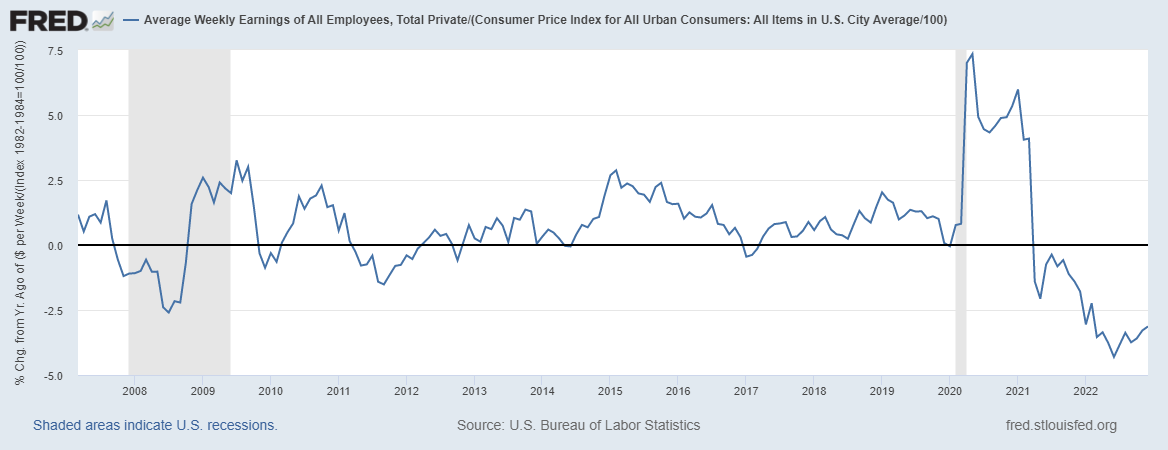
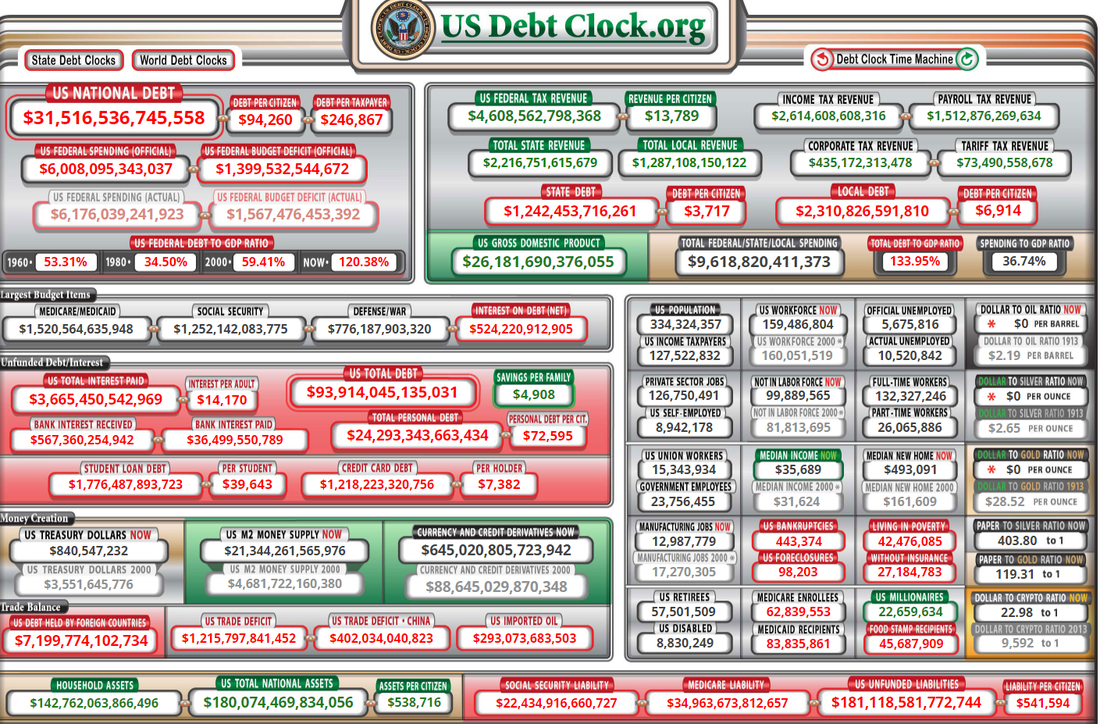
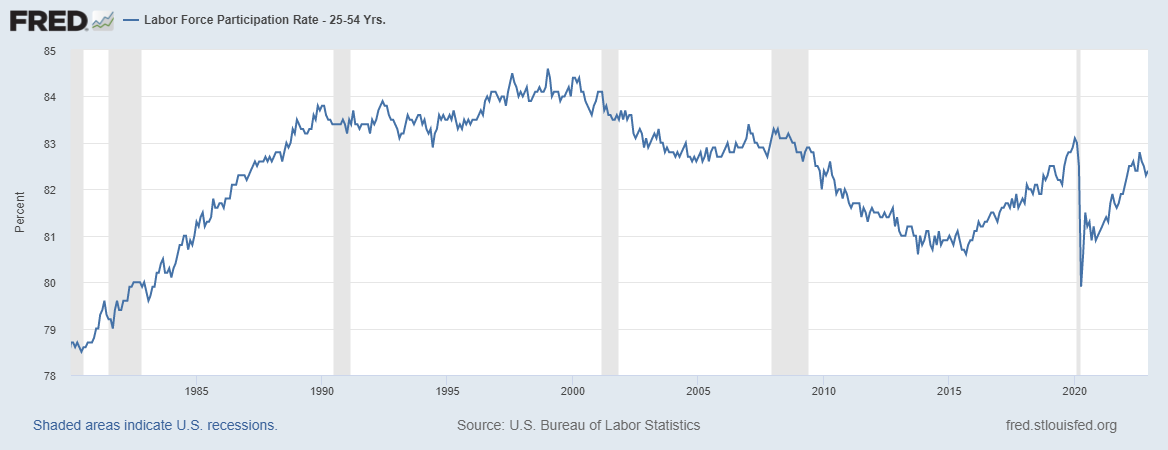


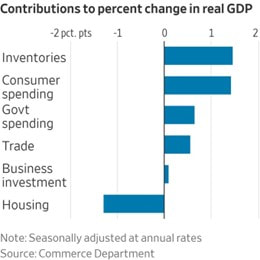
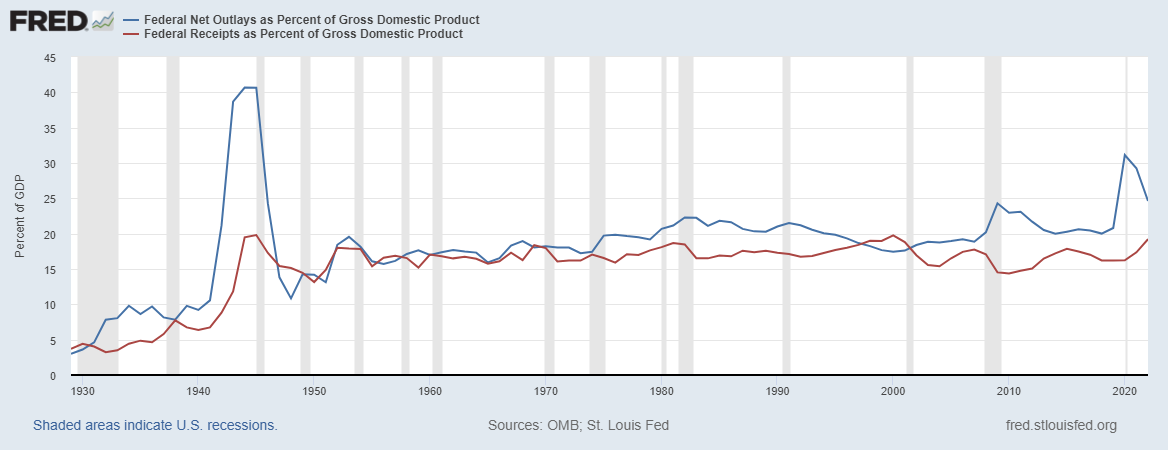
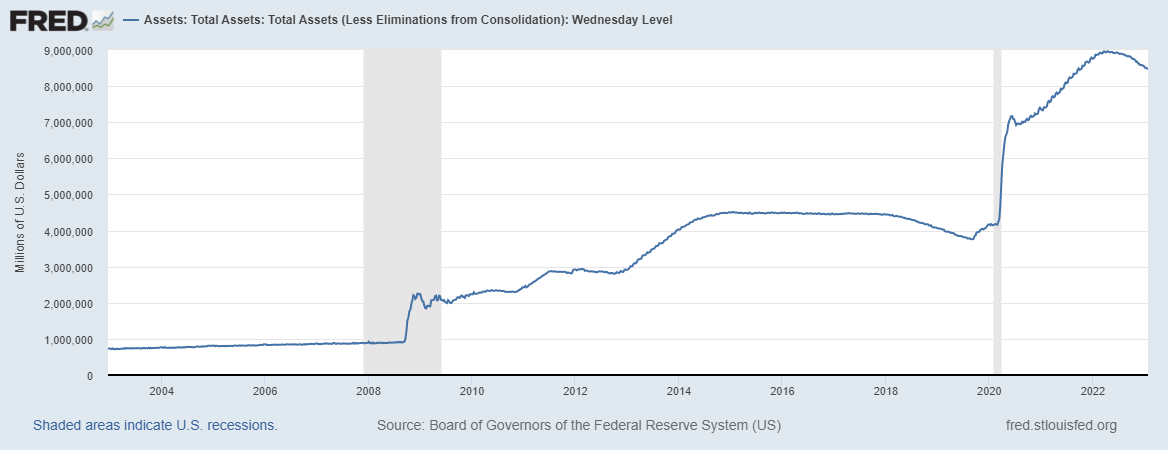
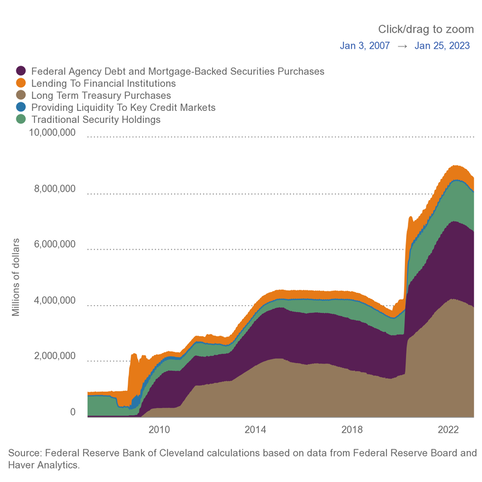
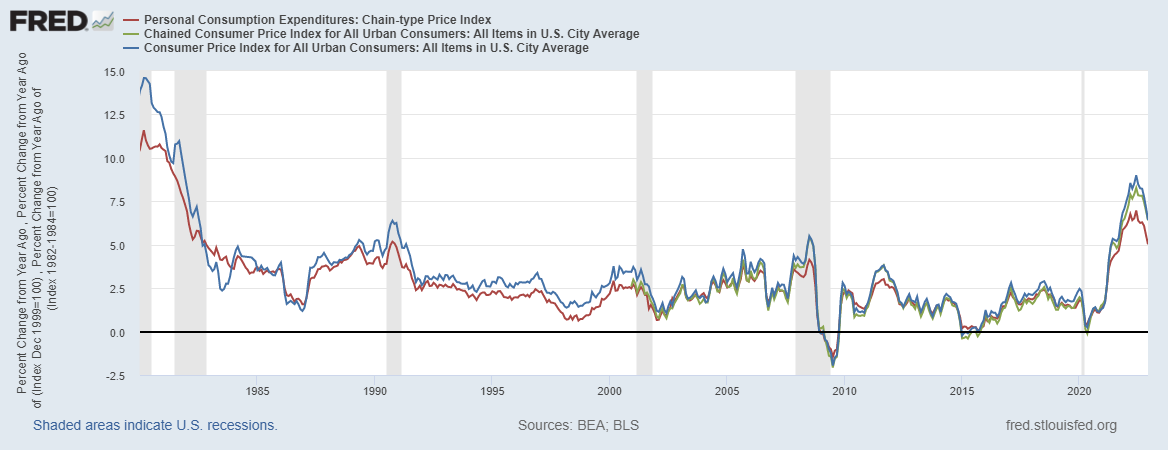
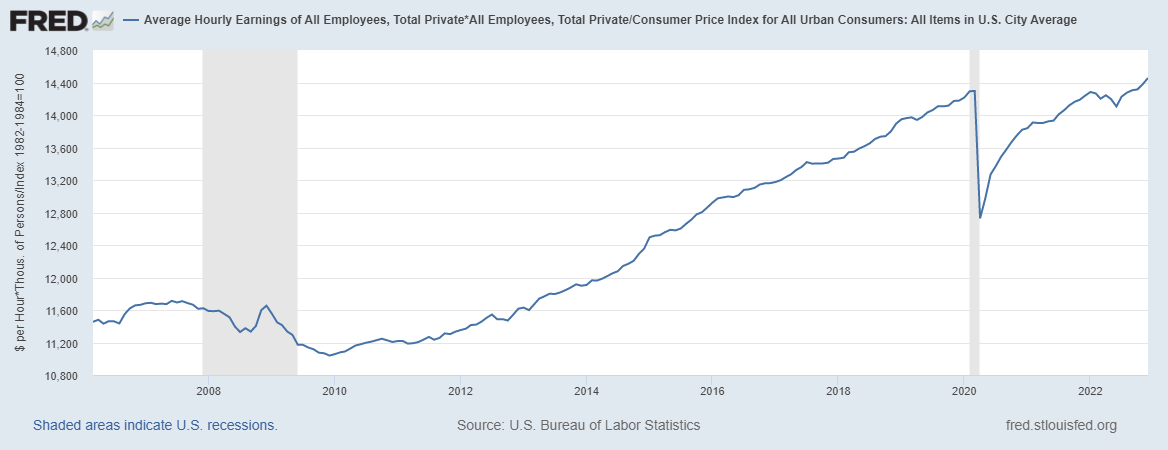
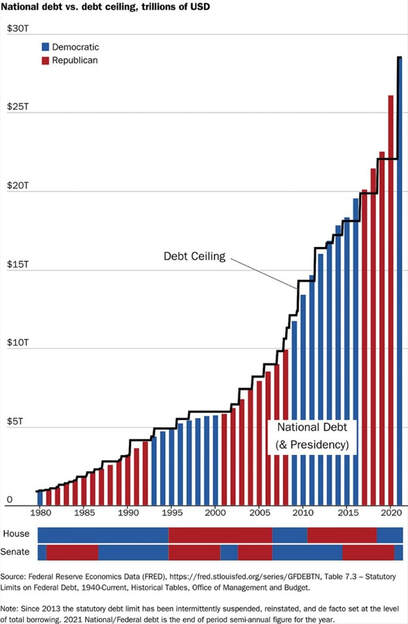


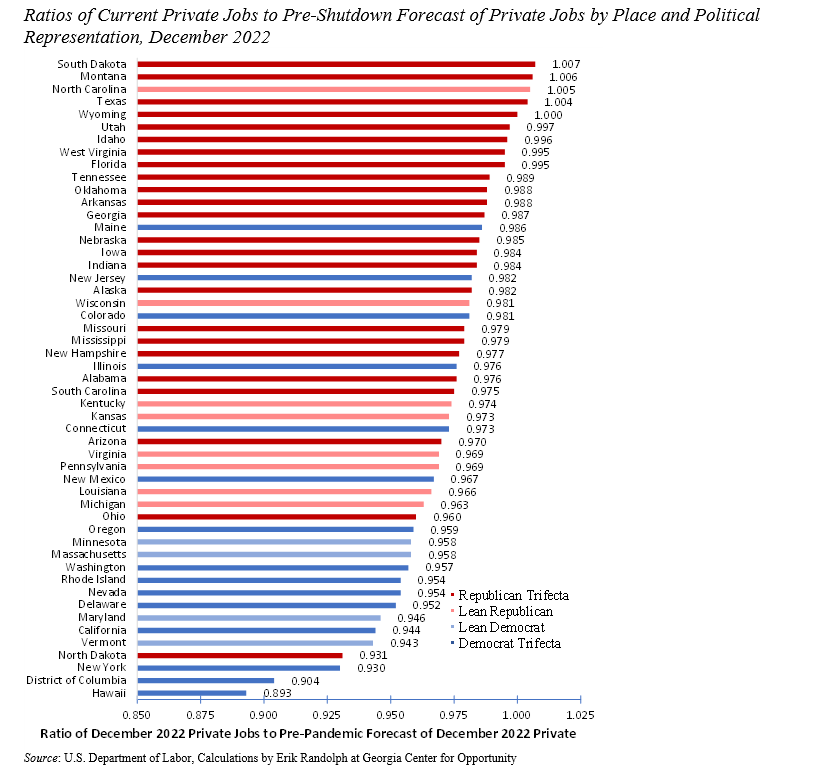
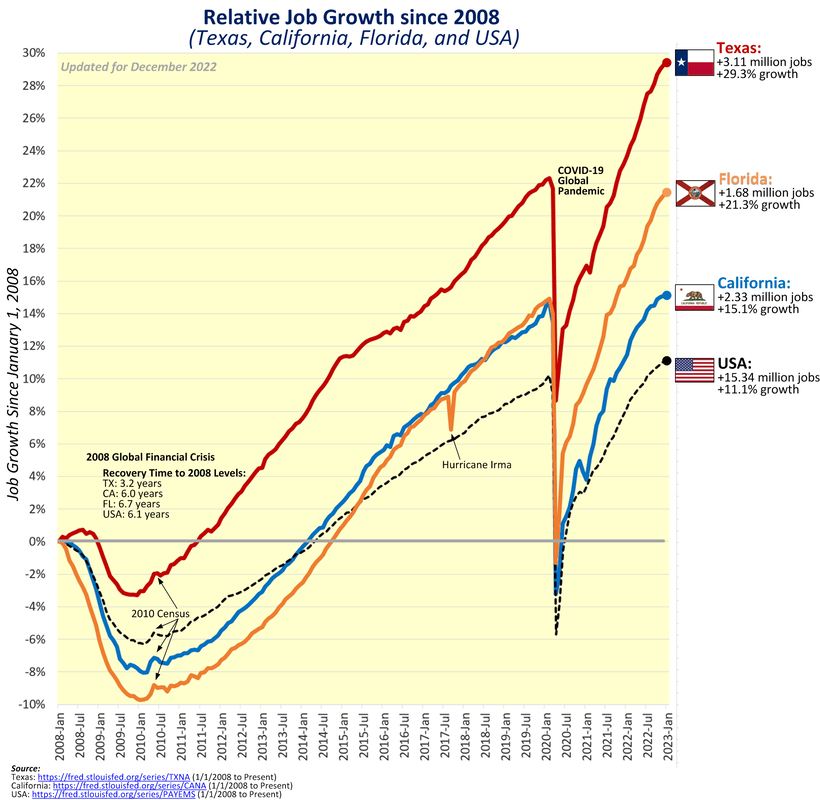
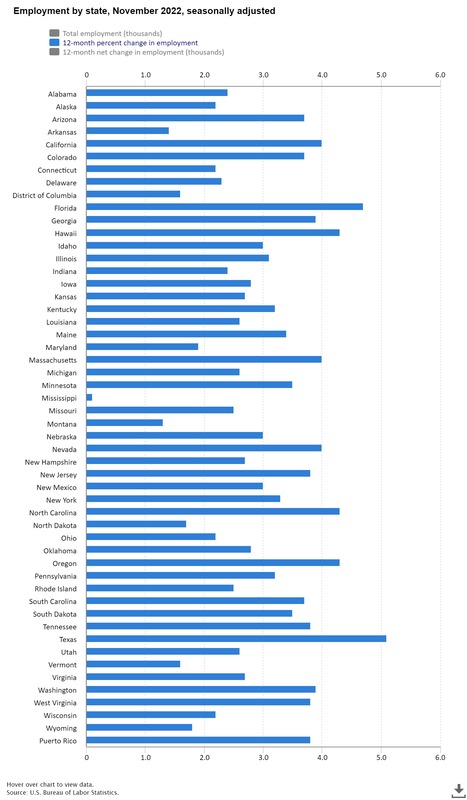

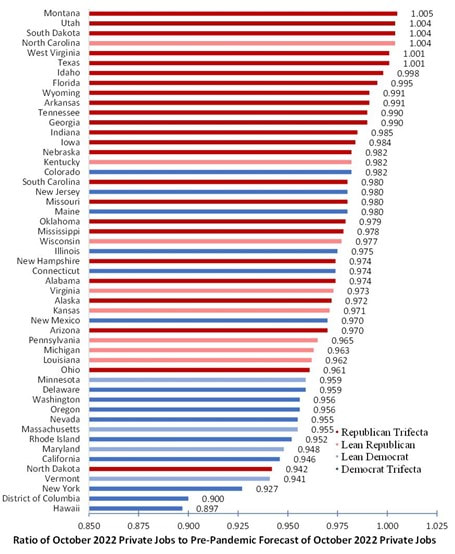
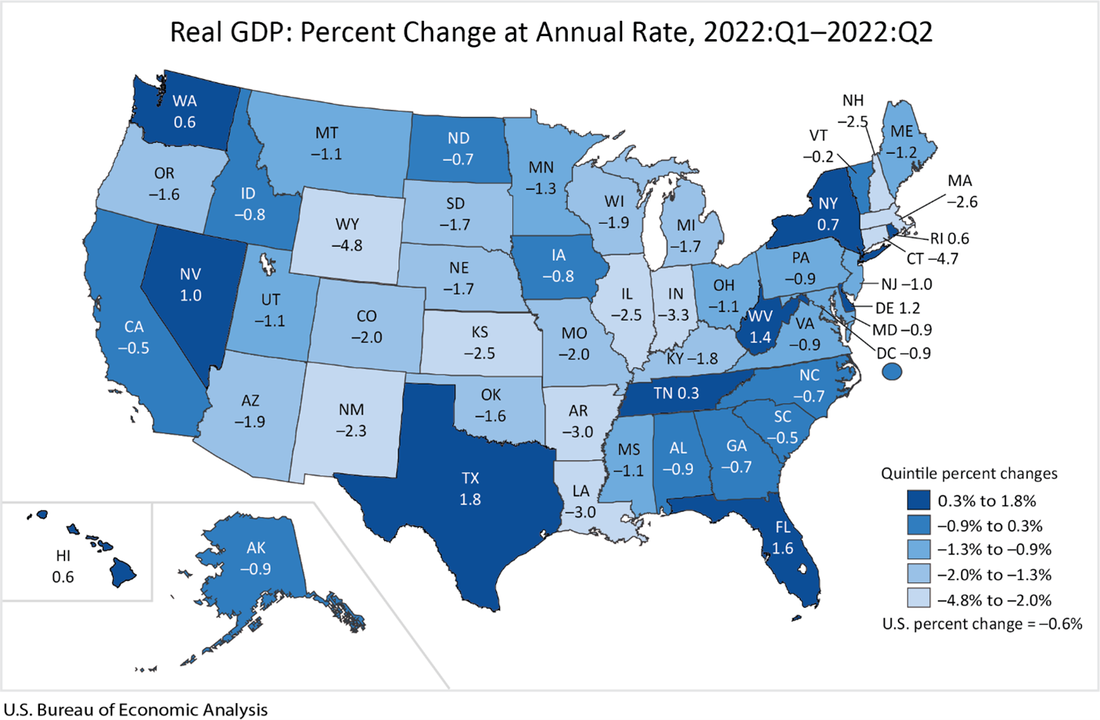





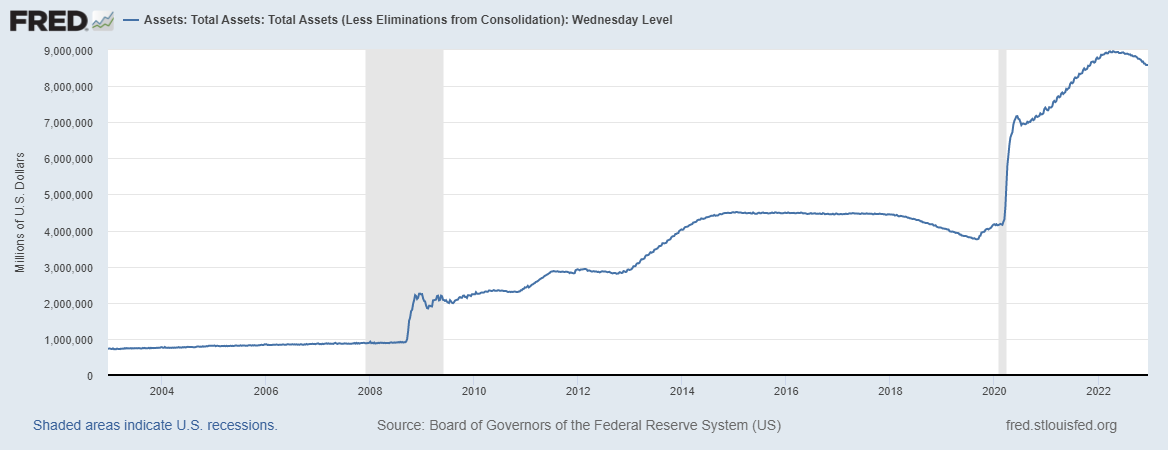
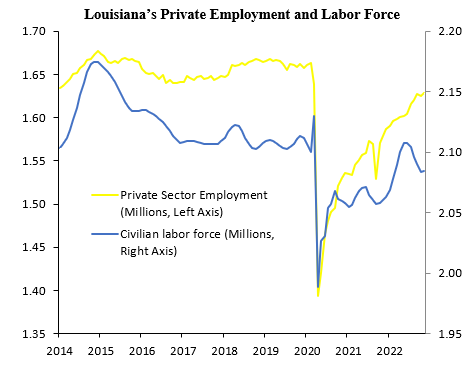

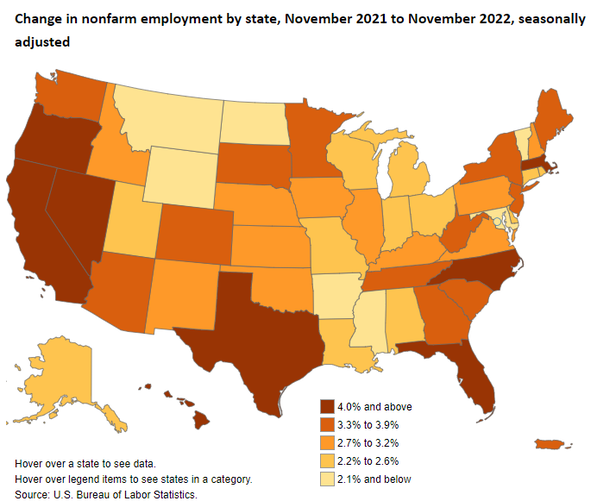


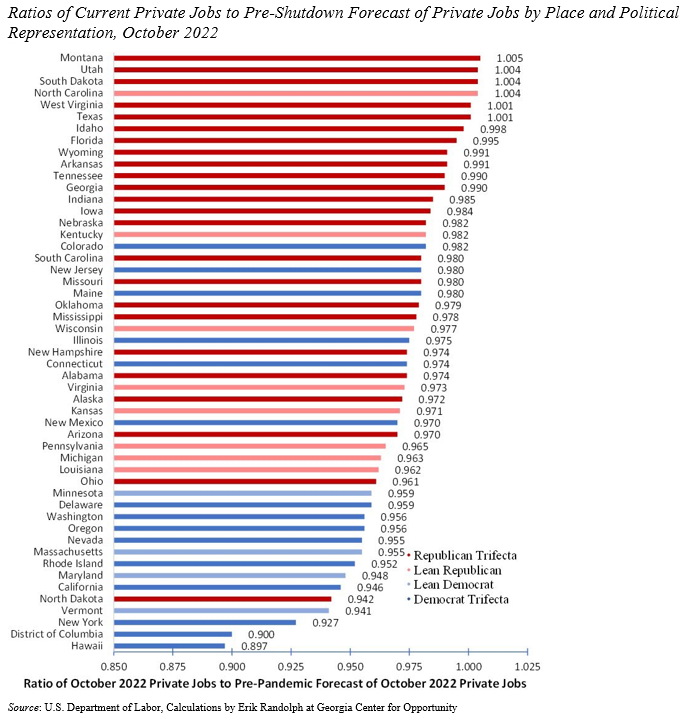
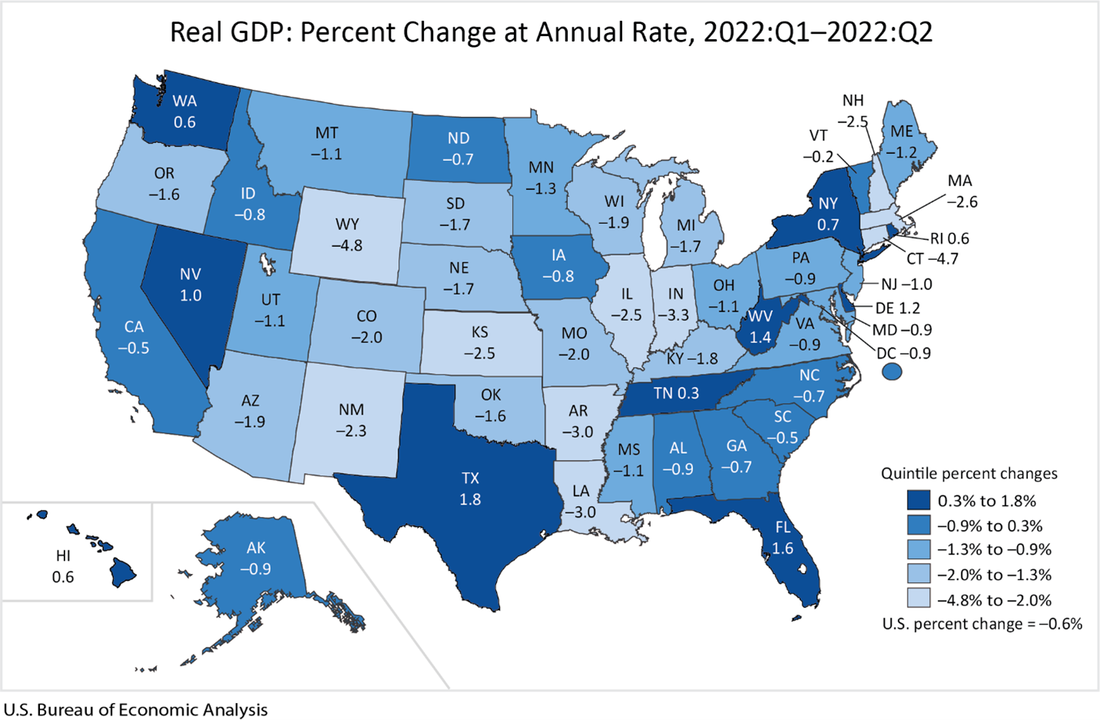
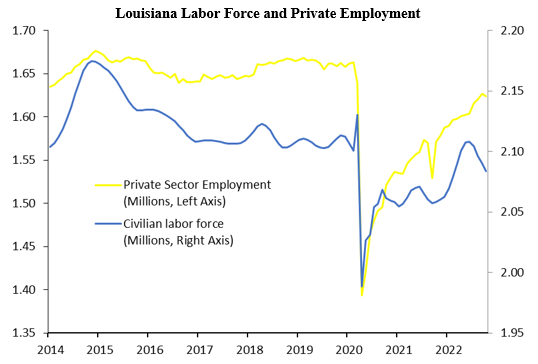


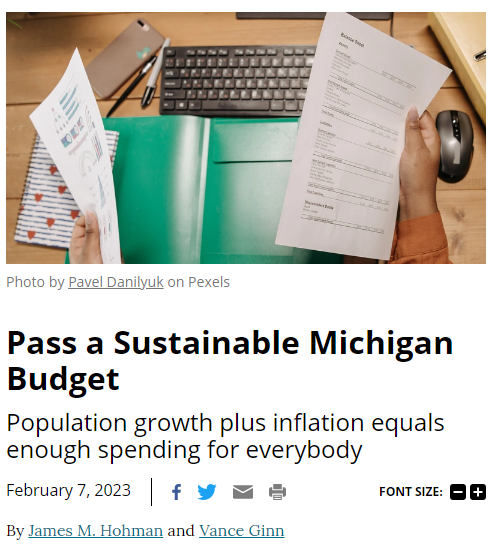
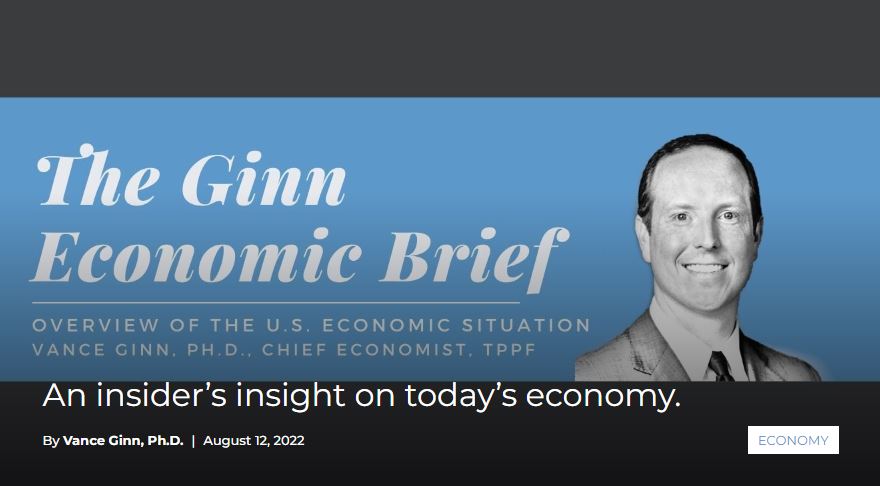
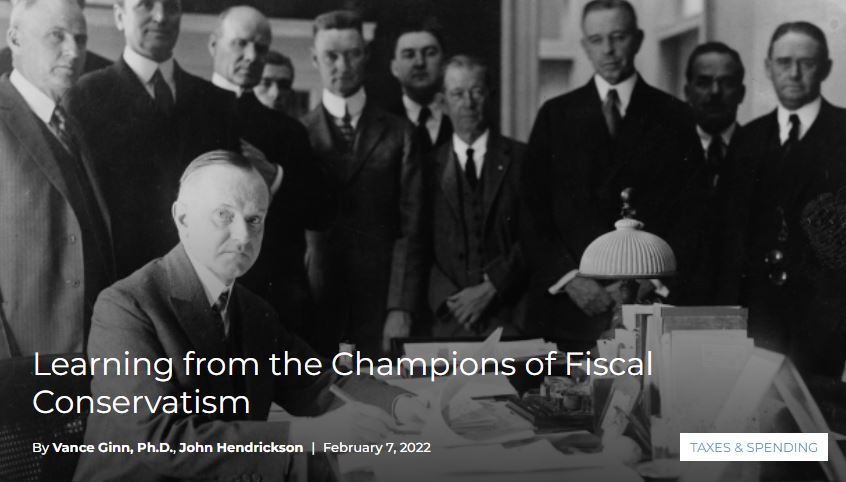
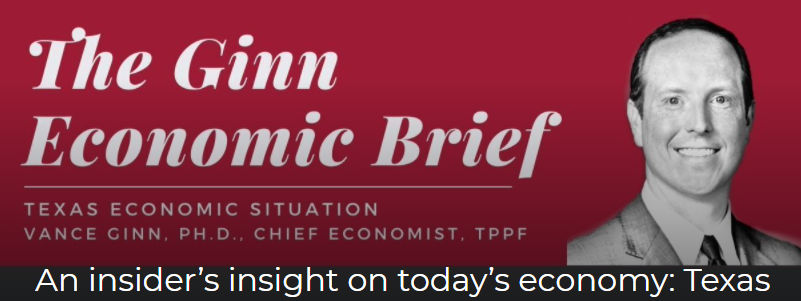

 RSS Feed
RSS Feed